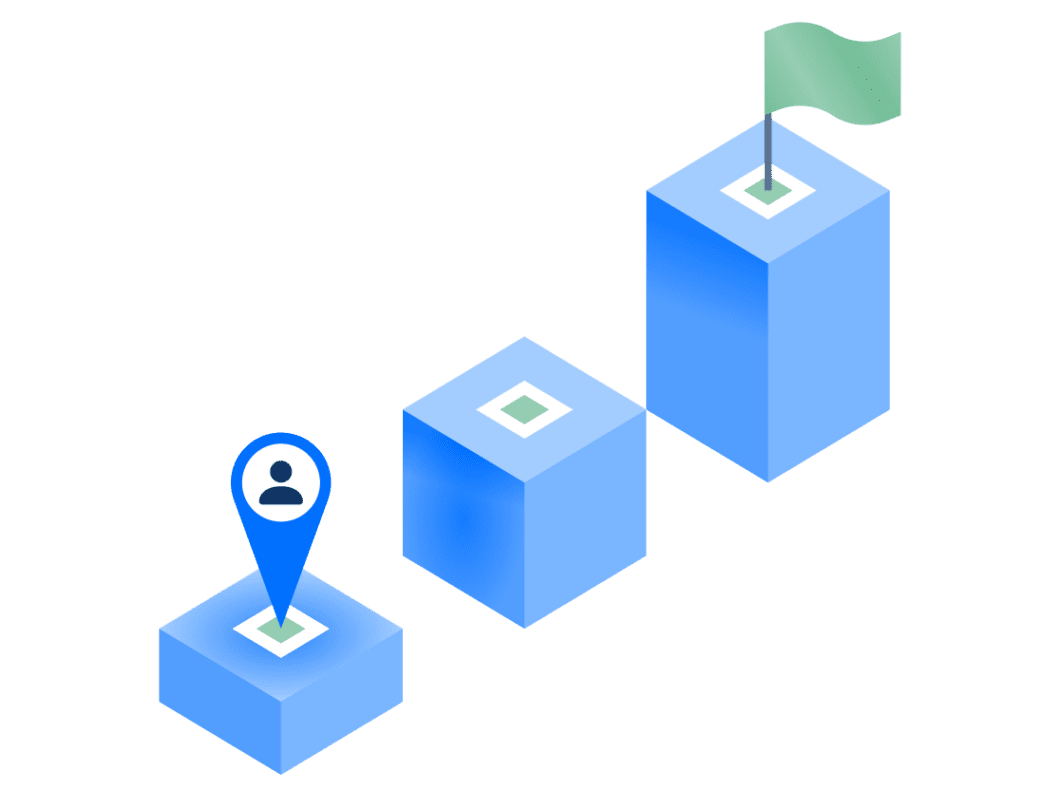What are the quintessential skills of the 21st century?
During this article, we explain the significance of 21st-century skills and how they drive success in today’s dynamic work environment. Explore the essential skills needed for future-proofing your career.

Technology and digitization are rapidly changing the society we live in. As machines and new technologies absolve us from repetitive tasks, other human skills are becoming increasingly important. Critical thinking, creative problem solving, positive feedback skills and lifelong learning have become commonplace.
A modern way of working comes with specific skills. In this article, we will explain what the quintessential skills of the 21st century are, and why.
The information eraCopied
We are currently living in the information era, also known as the computer era or digital era. In the space of just a few decades, traditional industry has been replaced by an economy that runs primarily on information technology. ISDN, for example, wasn’t implemented in the Netherlands until 25 years ago and the iPhone has existed for less than 15 years.
In the information era, computers are the driving force behind work processes, most of the data is stored and transmitted digitally, and more and more repetitive tasks are being taken over by machines. Data is today’s gold, a commodity that allows companies to strengthen their competitive position and perfectly align their services with the needs and preferences of increasingly demanding clients.
It should come as no surprise that new skills (which tend to demand quite a bit of tech-savviness), are a lot more important in today’s information society than they used to be in the past. Work processes are becoming less labor-intensive and increasingly information-intensive. In addition, the information society has globalized the market: rather than competing with companies from your own region or country only, your competitors are now from all corners of the world.
Skills for the 21st centuryCopied
What are the skills of the 21st century? The term ’21st-century skills’ is an umbrella term for 11 skills that are considered essential in today’s information era.
- Critical thinking. This skill allows you to assess whether a line of reasoning is valid or plausible, making it easier to spot fallacies, illogical reasoning and sloppy assumptions.
- Creative thinking often leads to exciting and useful new ideas.
- Problem-solving capabilities make it easier to tackle unexpected problems and challenges.
- Computational thinking offers the tools you need to understand and use modern information technology.
- Information skills allow you to extract useful insights from a broad spectrum of information resources. Someone with well-developed information skills is also able to filter that data and translate it into strategic goals and concrete solutions.
- Media savviness allows you to utilize various forms of media (print, digital media, social media) for communication, information gathering or commercial activities.
- Communication plays a huge role in an era where outspokenness is important and human interaction takes place on an increasingly broad spectrum of channels.
- Collaboration is important to get the most out of the wealth of information available in the information era.
- Work environments are growing increasingly diverse as a result of globalization, free movement of persons and the multicultural character of most western societies. As a result, social and cultural skills (citizenship) are more important than ever before.
- The information era demands a great deal of independence from employees. That is why self-regulation is an important skill of the 21st century.
- Leadership is important to maneuver organizations through the data jungle of today’s information society.
Although the skills above have always been important, their role has increased since the advent of the information society. The business landscape of the 21st century is more dynamic than ever before. Market demands and preferences are subject to monthly or even weekly change.
As a result, organizations are confronted with disruptive developments at a growing rate and must be able to respond swiftly. There are no guarantees and falling behind means descending into irrelevance. The skills of the 21st century make up the basic toolset that allows employees to survive in the competitive, data-driven and globalized market climate that characterizes our digitized information society.

Three categories for the 21st centuryCopied
The skills of the 21st century can be divided into three categories: learning skills, literacy skills and life skills.
1. Learning skills
These skills emphasize the mental processes necessary to adapt to (and flourish in) challenging, rapidly changing work environments. Learning skills are also the universal skills you need in almost any modern work environment.
Critical and creative thinking, collaboration and communication are all part of this category.
Critical and creative thinking forces you to consider certain matters and routines from a different perspective, often resulting in original and smart solutions. Communication and collaboration promote the exchange of ideas and facilitate compromising. The result? A 360-degrees picture that considers processes, solutions and product ideas from all possible angles.
2. Literacy skills
Literacy skills provide employees with a sound theoretical foundation. They equip professionals with the ability to find, understand and analyze important information among the data heaps of the information era.
Getting to the bottom of facts, graphs and statistics? Understanding how information is published? Finding your way in the modern, highly diverse media landscape? Distinguishing reliable information from fake news? You can do it all with literacy skills such as information skills, media savviness and computational thinking.
3. Life skills
Life skills have both a professional and a personal component.
For example, your personality largely determines whether you are a good leader. Characteristics such as flexibility, self-regulating ability and the art of functioning well in a diverse team are directly related to the individual’s character and social skills.
Life skills, therefore, live at the crossroads between hard and soft skills.
Visualizing skillsCopied
As an organization, you want to know whether you have got all the skills of the 21 century on board. You will quickly find out by visualizing the skills of your employees. Luckily, the information society has also produced useful tools for visualizing the skills of employees!
The skills matrix is a good example; a schematic overview of the skills and/or competencies of an employee. The benefits?
- An at-a-glance-view of your people’s abilities and limitations.
- You see whether your organization has a skills gap in a competency map.
- Recruitment becomes easier and more targeted.
- You can compose the right project teams in no time.
You can build and maintain the matrices in Excel. The downside is that excel is very time-consuming and labor-intensive. In addition, Excel is complex and prone to human error. AG5 software is better tailored to today’s information era. AG5 replaces all those separate Excel sheets with a single central online environment in the cloud. It allows you to manage read and write authorizations for each individual employee, team or department. Plus, you can enter and update the information in realtime and from any workstation.
Want to learn more about the benefits? Feel free to call or email us or book a demo to see the solution for the modern information era by AG5 with your own eyes.

